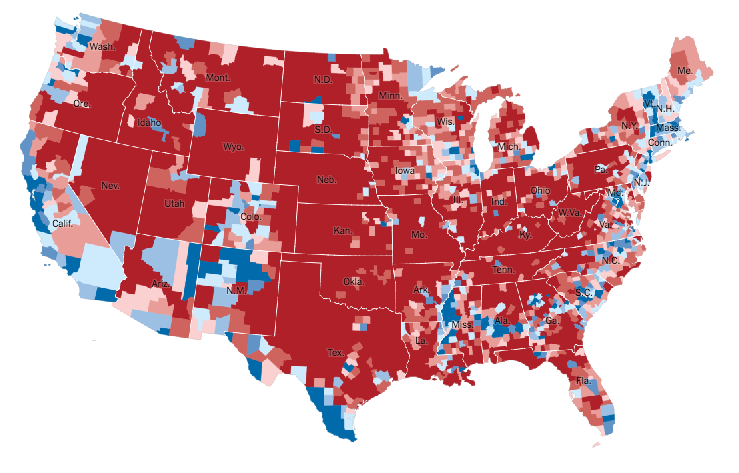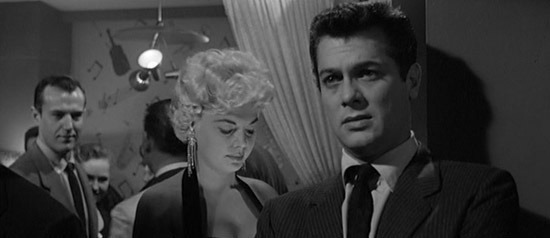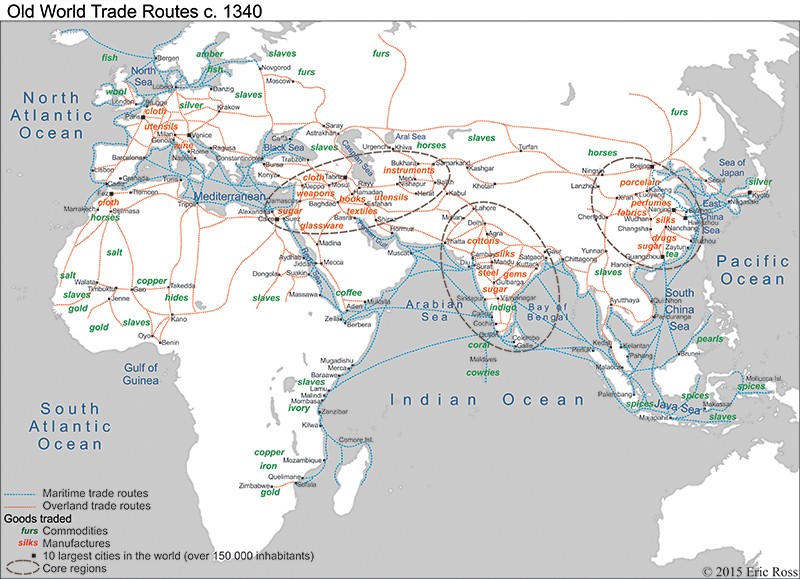Gurgaon: India's Private City
Powerful. And Mr. Parth Shah speaks my mind exactly: “One simple way to assess success is; do people want to go there? Are people going there willing to settle there, open their businesses [ … ] On all of those counts, Gurgaon has been fabulously successful.”
Stewart Brand Revisits the Trips Festival, 50 Years Later
Gabe Meline inteviews Stewart Brand at KQED:
The psychedelic thing mainly was a signifier that one was part of a certain cohort, of a certain body of people who were of a certain age, who got to know each other. It was social in that sense. As a drug, I think it’s probably not as social as Ecstasy, or MDMA – which I haven’t tried, but its reputation is highly social. The formula I was working on with public events and with the WELL is that you collect a bunch of interesting in the same place at the same time, and then turn up the flame – such that they mix more rapidly, and their budding emotion is more intense. It’s just the basic formula of how you make a good party. I’m not a party animal. But maybe because of that, if there is going to be a party that I am involved in, I want to make sure it’s overwhelming.
The Future of Cities
A scattershot short docu on youtube by Oscar Boyson, but a decent intro to lots of things I think about:
Under Trump, red states are finally going to be able to turn themselves into poor, unhealthy paradises
Ignore the dumb headline, and stay for this by Steven Pearlstein in The Washington Post:
After all, if Republicans cut taxes — in particular, taxes on investment income — then the biggest winners are going to be the residents of Democratic states where incomes, and thus income taxes, are significantly higher. Governors and legislatures in those states — home to roughly half of all Americans — will now have the financial headroom to raise state income and business taxes by as much as the federal government cuts them — and use the additional revenue to replace all the federal services and benefits that Republicans have vowed to cut.
and think again about how you can move your government more local, and less federal, thanks to republicans.
Holiday Hole
The holidays are here, and everything in America is going really well. To celebrate Black Friday, Cards Against Humanity is digging a tremendous hole in the earth.
Stanley Kubrick's Boxes
Unfortunately the full copy is no longer on Vimeo.
Via Kottke, more info there.
Some thoughts on the election
I see people responding to the widespread despair and fear on social media with a positive message of strength and unity. Thank you to these people for responding in a positive fashion, and looking for what we can do to improve our world.
However I personally disagree with the idea of ‘unity’ on a national level being a solution. Take a look at this:

As it was in 2008 and ‘12, the map shows not red and blue states, as the media (due to the electoral college) talk about, but blue cities, and red rural areas. We should be starting to accept that there is not one America, there are two, and that this is ok. I talk frequently about ‘foot voting’, which is the idea that people can express their political preferences by moving to places that are are a better match for them. This has been happening for a while here, and around the world, younger more educated and liberal people are moving to the cities. When they join together in these cities, they change the cites to be closer to their ideal, through the local political process.
So, what should be done about our federal government? Which does have a large impact on us, even those of us in the cities? Well, I believe that a better result for ‘America’ as a whole, and certainly the cities, would be to reduce the power of the national government, to allow cities to diversify, and provide various options for people to vote with their feet. I provide several links talking about this idea in comments to this post below.
Does this mean we are ‘abandoning’ the poor folks in red areas to their terrible fate? No. I have seen some very disappointing articles linked on social media about how third party voters are operating out of white privilege, etc. If we only were at risk of the ‘consequences’ of a Trump presidency we couldn’t vote for anyone but Clinton. In my mind this is exactly the attitude that has gotten us here. That we only have two choices, and we all have to fall in line with one or the other, due to how scary the other side is! The fact of the matter is that to a large extent already, LGBT, people of color and others are already refugees from the red areas. Is this fair? That people should have to leave their houses, families, etc to go to the cities to be safe/express themselves? No of course not. I believe that everyone should respect each other for their beliefs, and be able to live free wherever they are. However this is not reality, and though I hope it will be reality in the future, it will surely be a slow process. How will this process take place? I believe it will be through competition between the cities and the rest of the world. This is how progress has always been made, people that believe in a better life going to a new area, making it theirs, and proving that it is a better way. See also my separate comment below about the rights of ‘red people’ to live as they please. (‘Red people’ of course being a label for people who voted for Trump, red on the map, nothing further is meant by the term)
So, we should work on unity at a local level. Act to make this city the best it can be. Welcome the refugees, provide them safety and a hope for a better future. And if you agree with me about an idea for a better world being a less powerful federal government, work to provide open immigration into your city from the rest of the country as well as the world. Will life here in Seattle become less safe for the people Trump attacked in his speeches, and threatens to do in in policies? I hope not! I hope that we can prevent that, but if it does seem to be happening here, let us gather together and fight it. And even Seattle today (yesterday) as we all know is nowhere near a safe place yet for marginalized people, there is much work still to be done here already.
Footnotes:
Freedom of red folks to live as they want to: The flip side of this, is to try and think about what the red areas are asking for. They went out and voted for Trump for a reason, their own reasons, and who are we to say that they are wrong. Trump seems to me to be a misogynist, and a dangerous person to women. I have a reaction that I should protect all the women of America by voting against him, to prevent him from coming to power. But, 62% of non-college educated white women voted for Trump. By voting against him I actually tried to overrule their stated wishes! I don’t believe in forcing my views on people, and a national election is just that: Me trying to force my views on a whole lot of people who don’t agree with me. I would much rather people in red areas that voted for the policies they desire be allowed to have them, even if the election had gone the other way!
Cities as a term: A city is currently the example of a progressive place in America, and also seems to me to be the future, for economical, cultural, and environmental reasons. However, I do not mean that rural places can’t also be progressive, or that rural places should not be able to take autonomy in a political sense. So I use cities here as a term to mean a self governed group of people. I hope that other places will also be able to self govern if we set up a system of government that would allow it.
Unity locally and tolerance: So what of those people who voted red right next to us, our neighbors and family, etc.? I think as progressive people, we already are aware of the value of inclusion and respect, but these trying times ahead will of course be challenging. They have “won” our national election, and we will have to forgive them some gloating, but do not need to accept their strategic attempts to take the national position of strength and use it locally. Respect, but not passivity!
Another view of the two Americas from the NYT
And a great counterpoint to the conventional narrative from WaPo called Election maps are telling you big lies about small things. Which I feel mostly reinforces what I say above.
Voting with Feet vs. Voting with Ballots
The decisions we make in the voting booth tend to be less informed and less decisive than the votes we cast with our feet. Ilya Somin, author of Democracy and Political Ignorance, explains.
Snowden's Boss Shares Lessons Learned
A few words from the other side. Worth considering, as we don’t get a chance often.
The man who was Edward Snowden’s boss when the National Security Agency (NSA) leaker fled the United States is now speaking out about his experiences and how to counter insider threats.
Steven Bay, who served as Snowden’s boss when he worked as a NSA contractor with Booz Allen Hamilton from April 1 to May 20, 2013, told The Cipher Brief he has decided to publicly discuss his brief time working with the NSA leaker to fill out a “gap in the history” and combat what he calls a wealth of “misinformation that’s out there.”
Democracy and Political Ignorance: Why Smaller Government Is Smarter
Ilya Somin’s Democracy and Political Ignorance has profoundly influenced libertarian thinking about voters and elections. More generally, the 2016 primary season has satisfied few and left the electorate choosing between two highly disliked presidential candidates.
Also, his talk at Harvard Kennedy School.
Megacities: Urban Future, the Emerging Complexity - A Pentagon Video
According to a startling Pentagon video obtained by The Intercept, the future of global cities will be an amalgam of the settings of “Escape from New York” and “Robocop” — with dashes of the “Warriors” and “Divergent” thrown in.
Start thinking with your head instead of your hips

Start thinking with your head instead of your hips
– Sidney Falco “Sweet Smell of Success” (1957)
Secret Cameras Record Baltimore’s Every Move From Above
Monte Reel in Bloomberg Businessweek:
Pritchett had no idea that as he spoke, a small Cessna airplane equipped with a sophisticated array of cameras was circling Baltimore at roughly the same altitude as the massing clouds. The plane’s wide-angle cameras captured an area of roughly 30 square miles and continuously transmitted real-time images to analysts on the ground. The footage from the plane was instantly archived and stored on massive hard drives, allowing analysts to review it weeks later if necessary.
Since the beginning of the year, the Baltimore Police Department had been using the plane to investigate all sorts of crimes, from property thefts to shootings. The Cessna sometimes flew above the city for as many as 10 hours a day, and the public had no idea it was there.
The city wide panopticon that can solve crimes by rewinding time.
Mapping the Mercantilist World Economy
Our current globalized capitalist world economy was built on Mercantilist foundations, put in place in the first phase of global European expansion, the second phase being that of the formal European empires of the industrial age. In the case of the “New World” in the Americas, Europe’s Mercantilists were creating entirely new trade networks and hinterlands. In the Old World of Afro-Eurasia however, Europe was rearranging the existing, much older, world economy it had been part of since the Middle Ages (see Andre Gunder Frank’s Re-Orient and Jim Blaut’s The Colonizer’s Model of the World). I wanted to illustrate this first phase of global capitalism with thematic maps.
And he continutes through to the Britsh empire ca. 1750.
Brand New Subway
Jason Wright:
Brand New Subway is an entry into the “Power Broker” Game Design Competition. It’s an interactive transportation planning game that lets players alter the NYC subway system to their heart’s content.
Via Kottke.
Possible presidential spoiler Gary Johnson speaks to The Times editorial board about siphoning votes from Hillary Clinton
This is two former Republican governors having gotten re-elected in heavily blue states, so what’s that animal? What makes up that animal? So, in myself and Bill Weld’s case, that’s being fiscally conservative and socially liberal. We don’t care what you are socially as long as you don’t force it on others. The third unique leg on the stool is to really be skeptical about our military interventions and the fact that these military interventions have led to the unintended consequence of things being made worse, not better. Rule the world with free trade, rule the world with diplomacy. So free trade, lower taxes, smaller government, but recognizing that government does have a role and choice. Always coming down on the side of choice when it comes down to you and I as individuals. Those choices that don’t put others in harm’s way.
How can we save our beloved mom-and-pop shops from gentrification?
SARAH GOODYEAR in the NY Daily News with a pretty level headed look at “gentrification”:
In New York, a proposal that would require landlords to offer 10-year leases and submit to binding arbitration when negotiating rents has been stuck in committee for 30 years. Some lawmakers, citing a retail “crisis” sweeping the city, are making a new push to consider some variation on that idea. In Seattle, Councilmember Kshama Sawant, a socialist, has developed a proposal for commercial rent stabilization, although it, too, is not yet scheduled for a vote.
Such legislation is anathema to free-market advocates, who argue that government has no business interfering in the ability of landlords to charge whatever prices they want. They say that residential rent control has distorted the housing market already, and the last thing cities need is even the faintest hint of commercial rent control or subsidy. They dismiss the whole idea as one based on misguided nostalgia.
“The main reason Duane Reades and Walgreens are there is because people purchase there,” Steven Spinola, then-president of the Real Estate Board of New York, told The Villager newspaper last year, in advance of a forum the paper hosted on the issue. “This is a free market. It’s not something that should be negotiated.”
The conclusion gets to the crux of the matter, though people don’t want to believe it, cities change, and if you don’t like it, your only choice is to move on …
